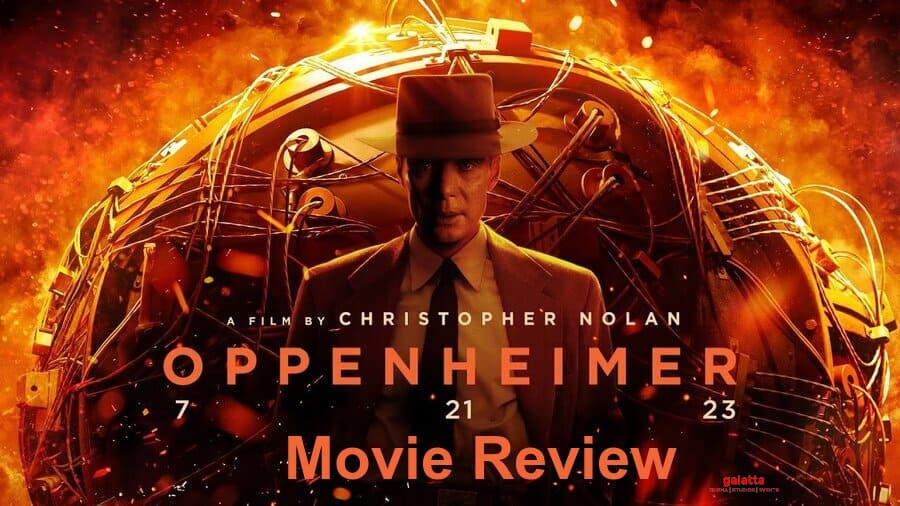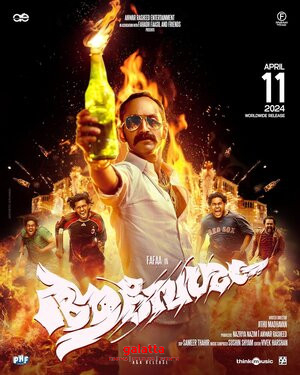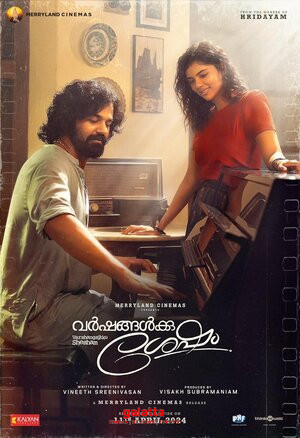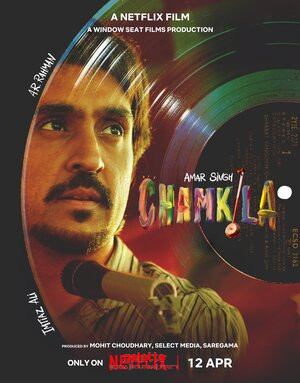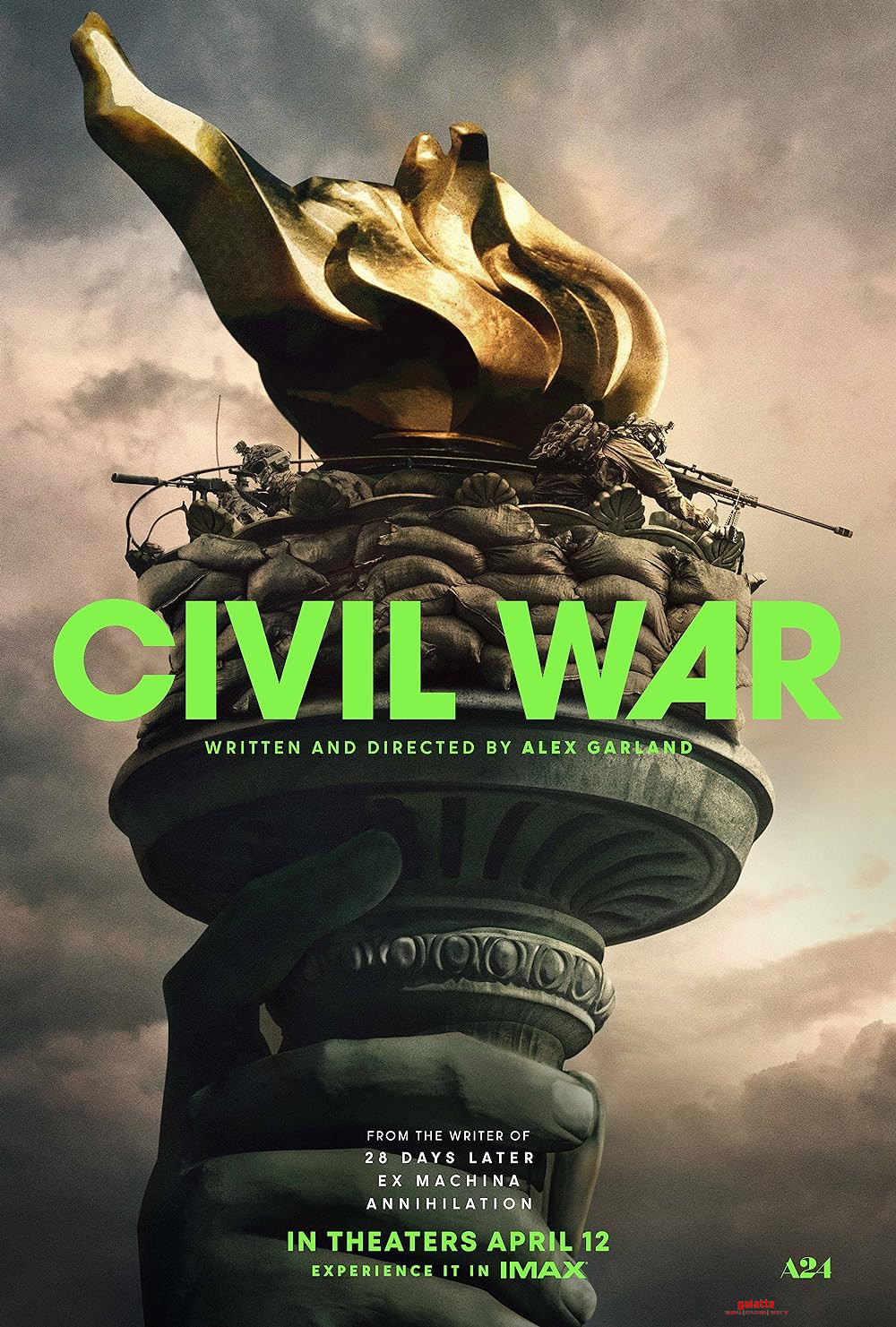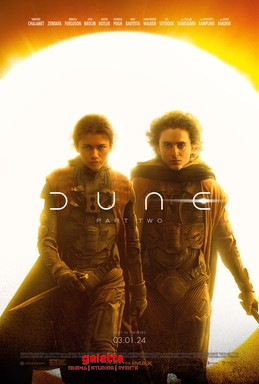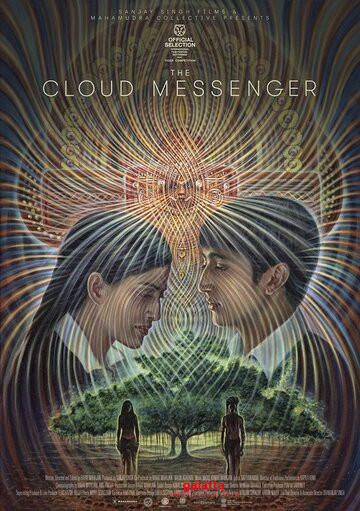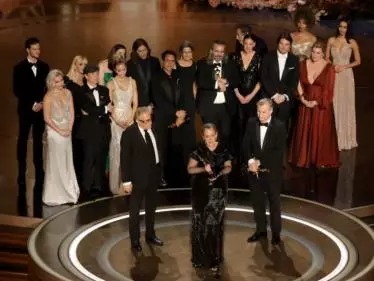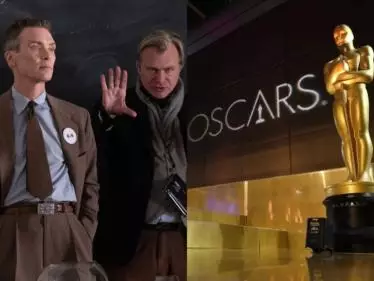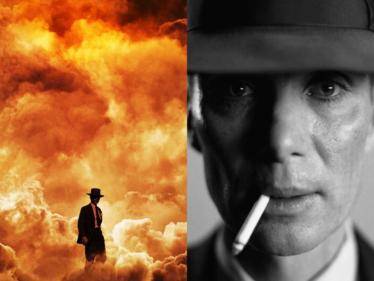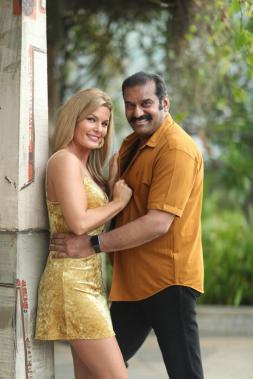Oppenheimer Movie Cast & Crew
When Christopher Nolan announced a biopic, of all things, I was curious. It's like Hitchcock making a Fred Astaire musical. It's like Spielberg making Saw. It's like Scorsese making a screwball comedy or a Western. There's nothing to say that a filmmaker cannot change pace, and before he became Christropher Nolan™, we did get a superb psychological thriller in Insomnia. But now that he's trademarked as one of the biggest filmmakers (who makes films as big as his reputation, with big IMAX cameras for big IMAX screens), what could have possibly interested him in the intricacies and intimacies of "normal life" – even if it is the life of J Robert Oppenheimer, "The Father of the Atomic Bomb"? The real subject of Oppenheimer, therefore, is not the life and times of its protagonist, but whether Nolan can enter the subatomic levels of the human psyche. In other words, do we know more about Oppenheimer coming out than we did going in?
The answer is yes and no. On a broad level, yes, we do get to see the various types of education the man put himself through. We get to see him associating with people we have only read about in Physics books: Einstein and Niels Bohr and Enrico Fermi. We see his facility with learning languages: he even reads Sanskrit, in the only cinematic instance of the Bhagavad Gita being used in a bedroom scene. We see his Left-leaning tendencies, even if he does not officially join the Communist party. We see him with a wife, a lover – both very tragically underwritten. And we see Oppenheimer being questioned, after the “success” of Hiroshima and Nagasaki, about his allegiance to America.
What we don’t see is a distinct directorial vision. Let me explain this with a spectacular early stretch from Interstellar, when the protagonist leaves his family to fly off into space. It’s a super-intense stretch, and you really feel the bigness of the emotion on a big IMAX screen. The screaming, weeping daughter runs out, only to be greeted by the dust raised by her father’s speeding car. She cannot see him. Then we get the other point-of-view shot, from the side of the car – this time, the clouds of dust obscure the father’s view of his house and his family. The collected, composed nature of the grandfather and brother is contrasted with the emotional nature of father and daughter. And over the tear-filled father’s face, we get one of Nolan’s most effective instances of playing with time. He fuses the visual of the speeding car with the audio of the countdown – that is, the present and the immediate future – and… boom! The screen is suddenly filled with fire as the rocketship takes off. I remember feeling breathless and knocked out in the theatre.
The only time we see this kind of auteur-ial signature in Oppenheimer is during the Trinity test, which was the first time a nuclear device was detonated. Nolan ratchets up the tension almost unbearably in the minutes leading up to the test (there’s another countdown clock here, a wonderfully analog version compared to the digital one in Interstellar) – and when the bomb goes off, there’s just silence. In a film scattered with religious references, this stretch feels almost… sacred. Even if you are not the religious type, I’ll bet you’ll feel something seeing the dreadful mushroom clouds. It’s as though we are both playing God and witnessing the wrath of God. Silence is the only possible soundtrack. And then the thunderous sound hits, and… boom! The implication that humankind has been altered forever is unmistakable.
But the rest of the time, Oppenheimer is more dutiful than dazzling, more admirable than awe-inspiring. The most surprising thing about the film is that it feels so much like other, earlier films. The early “he did this, and then he did that” portions feel like any other biopic that ticks off the protagonist’s traits and achievements. The big hearings feel like the portions of The Godfather: Part II where Michael Corelone is under trial. And amidst this, the most important aspect of Oppenheimer never comes through. We are told about his guilt in creating this genocidal weapon, but we never feel the weight of this guilt – because the film is always in a hurry to rush to the next bit of exposition, the next stretch of talk. (And trust me, there is a lot of talk.) There is no stay on any single emotion. The talking is all on the outside, but what we really needed to hear is Oppenheimer’s inner voice.
Oppenheimer is certainly a watchable film. There’s a great cast including Matt Damon, Kenneth Branagh, Robert Downey Jr., Emily Blunt, a fabulous Gary Oldman, and of course, Cillian Murphy, who does more for the character than the writing does for him. Also, Nolan does his patented “time thing” – both screenplay-wise and editing-wise – to keep things moving at express speed. Let’s take the part where Oppenheimer meets an army officer named Pash, played by Casey Affleck. We get three timelines: the present, where Oppenheimer meets Pash; the immediate future where the Matt Damon character asks Oppenheimer about this meeting with Pash; and the far future, where this meeting with Pash is discussed in front of the interrogating committee. So yes, the talkiness of the film never makes it “boring”.
But there’s also a feeling of things being very generic, especially in the way the “real villain” is exposed at the end. It feels right out of a cheap melodrama. The Florence Pugh character, whom Oppenheimer has an affair with, never feels like she’s fully there. And so when he grieves the end of the relationship, the grief does not pierce us. Emily Blunt plays Oppenheimer’s wife as a stern, strong woman whose early scenes with her infant are entirely stripped of dramatic potential, and even in her later scenes of being a pillar of support, she comes across more like a placeholder than a person. Oppenheimer’s brother, similarly, is spoken about as being central to his life, but the man barely registers.
The best biopics in recent times – Lincoln, Steve Jobs – were highly focused, and with a few events, we broke into the psyche of the subjects. Oppenheimer crams in so much that it is diffuse to the point of seeming vaporous. The more we see of the man, the less we seem to really know him. Early on, we seem to be in the “troubled genius” biopic mode. Eventually, we end up with the biopic of a modern-day Jesus Christ, nailed on a cross for being an anti-war martyr. Oppenheimer’s wife keeps asking him to fight back, and you feel her frustration. But this is also the easiest way to earn the audience’s sympathy. Had Oppenheimer fought back, had he been more complex, we may not have “liked” him so much – and for all the technical/screenwriting complexity that marks Nolan;’s work, he’s never been one for psychological complexity.
I liked Nolan’s decision to show things mainly from his protagonist’s point of view. So we never see the Hiroshima/Nagasaki bombings. We hear of them over the radio, like Oppenheimer does. We don’t see images of what happened to the Japanese in these cities in the days after the war. We either hear about the horrible after-effects, or see them imagined through Oppenheimer’s eyes, as he’s hit by visions while doing regular things like addressing an audience. But as if to compensate, every little thing Oppenheimer hears is supplemented by a visual that lasts a fraction of a second. For instance, if we hear about a bomb blast in Halifax, the screen micro-cuts to fragments of an explosion before we cut back to the talking that’s going on about the bomb blast in Halifax. It’s as though the non-stop information dump isn’t keeping the movie busy enough, and Nolan felt we needed the occasional Nolan-esque visuals to keep his fans interested. Speaking of Nolan-esque, there’s also the non-stop music. And I really couldn’t see why this film needed to be shot in IMAX, or why the fussy back and forth between colour and black-and-white was needed.
Yes, a lot of these decisions have been “pre-sold” and explained to us through interviews and promos, but do they feel true to us while we watch it? That’s the question. I am not a fan of Tenet, but at least it felt like the distinctive work of a very distinctive filmmaker. It had scope. It was wildly ambitious. Oppenheimer feels so bland in comparison, though it is – overall – the better film. At least, it is clean, one of a piece. It doesn’t trip over itself trying to be “clever”. But when David Lean made Lawrence of Arabia, which ran 30 minutes more than this three-hour film, it felt like we were inside the man’s molecules. With Oppenheimer, we feel like we are watching the man through a telescope, or getting a grasp of him by skimming through a Wikipedia page. He looms large on the screen, as though you can reach out and touch him. And yet he feels so distant.
